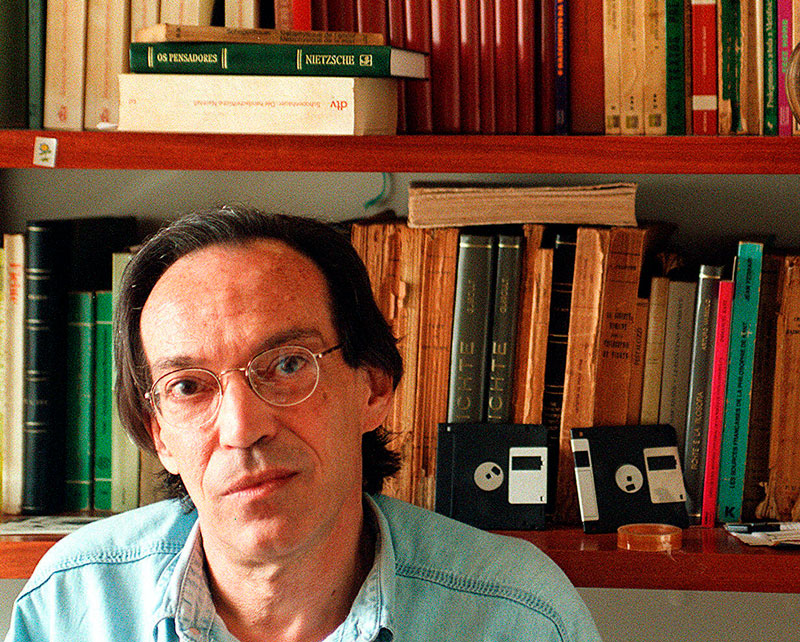
Rogério Assis / FolhapressThe philosopher in 1997: academic rigor tempered by a poetic vocationRogério Assis / Folhapress
An understanding of how ideas are formed and the conceptual conditions that give rise to philosophical interpretations of the world was at the heart of the reflections expressed by philosopher Rubens Rodrigues Torres Filho, a professor at the School of Philosophy, Languages and Literature, and Human Sciences at the University of São Paulo (FFLCH-USP) for nearly 30 years. As a translator of German philosophers, he was responsible for bringing scientific rigor to the study of German authors in the Brazilian academic universe. Born in Botucatu (São Paulo), Torres Filho died at 81 years old, on December 13, in São Paulo, leaving behind two daughters and one son.
The bridge to German philosophy is one of Torres Filho’s main intellectual legacies, according to philosopher Pedro Paulo Pimenta, also from FFLCH-USP. “Another key aspect of his career was seeking to understand how philosophers abstract ideas by reflecting on concepts,” he adds. According to Pimenta, Torres Filho’s work was important because it used the history of philosophy to explore the act of philosophizing.
With a degree in philosophy from USP, which he earned in 1962, Torres Filho became a USP professor three years later, teaching a course on the history of modern and classical German philosophy. Also at USP, in 1972, he defended his doctoral dissertation on Johann Gottlieb Fichte (1762–1814), considered one of the main figures in German idealism. One of the central ideas of this philosophical current is that the object of knowledge is constructed through cognitive activity. The thesis, titled O espírito e a letra. A crítica da imaginação pura em Fichte (The spirit and the letter: A critique of the pure imagination in Fichte), was published in 1975 by Ática and is considered a benchmark for interpreting the German thinker in Brazil.
“In his doctoral dissertation, Torres Filho showed how Fichte approaches philosophy by engaging with the history of this area of knowledge. The way he interpreted the author’s thinking is quite original, proposing a dialectic between letter and spirit that was only revisited in Brazil years later, in the last book by philosopher José Arthur Giannotti [1930–2021],” states Vinicius Berlendis de Figueiredo, a professor in the Philosophy Department at the Federal University of Paraná (UFPR).
“Through his writing and his classes, Rubens taught my generation, and we are striving to teach the next, how conceptual rigor is enhanced by fine irony and virtuoso care with words,” observes philosopher Luiz Henrique Lopes dos Santos, of USP.
In the book Ensaios de filosofia ilustrada (Illustrated philosophy essays; Iluminuras, 2004), Torres Filho compiles some of his essays, including the text “Dogmatismo e antidogmatismo – Kant na sala de aula” (Dogmatism and anti-dogmatism – Kant in the classroom). With a deep philological knowledge of Portuguese, German, and French, he translated, for example, classical philosophy texts for the collection Os pensadores (The thinkers; Abril/Nova Cultural), published from 1968 to 1982. “He mastered the craft of words, both in foreign languages and in Portuguese. His academic rigor was tempered by a poetic vocation that gave his philosophical texts a freshness that was characteristic of Brazilian literature,” explains Figueiredo.
Retired in 1994 at the age of 52, he also wrote books of poetry, an artistic expression he considered as important as philosophy. All of the author’s work is compiled in Novolume (Iluminuras, 1997). The philosopher stopped translating, as well as writing poetry, essays, and academic texts, in the late 1990s, after suffering a stroke.
Republish